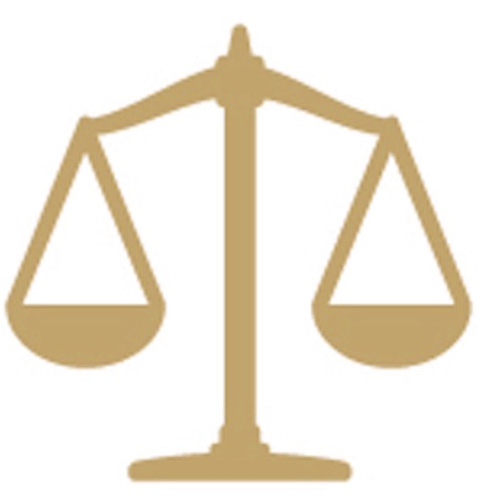لا زالت السلطات السعودية مستمرة في حملات اعتقالات طالت شرائح مختلفة من المجتمع، وركزت على نشطاء حقوق الإنسان ودعاة الإصلاح، والأشخاص الذين تتوقع السلطات أنهم قد يتجرأون في نقد انتهاكات وتجاوزات السلطات، وكان واضحا بما لاشك فيه أن هذه الاعتقالات تأتي بهدف اسكات المجتمع السعودي، وضمان عدم وجود أصوات ناقدة لأخطاء النظام، وخاصة أن هذه الحملات جاءت متوازية مع حملات دعائية تروج لولي العهد السعودي بأنه إصلاحي ويسعى للتطوير والانفتاح في البلاد، والسماح بالحريات وإعطاء الحقوق، ولكن وفي الوقت ذاته فإن الممارسة على الأرض مختلفة تماما، حيث تزايد القمع بشكل غير مسبوق.
والأخطر من ذلك أن السلطات السعودية وفي محاولة لتجاوز الضغوط الدولية، وفي محاولة لتبرير حملات القمع الرهيبة، فإن السلطات قامت بحملة تحاول فيها تشويه سمعة المعتقلين، ووعدت - في عدة مرات - بنشر فيديوهات اعترافات للمعتقلين، وسربت السلطات عبر منافذ متعددة، وورد للقسط من عدد من الجهات الدولية التي تواصلت بها السلطات، أن السلطات تعد لنشر عدد من المقاطع المتلفزة لضحايا الاعتقال التعسفي، وذلك بهدف ترويع المجتمع، وخداع الناس بادعاء وجود خلايا وتنظيمات سرية ينتمي إليها المعتقلين.
وتسرب السلطات أن إحدى المجموعات لها علاقات بمنظمات حقوقية ودول مجاورة وتهدف لإسقاط النظام، ومجموعة أخرى مرتبطة بجماعة الإخوان المسلمين وتهدف للاستيلاء على الحكم، ومجموعة ثالثة تسرب السلطات أنها تحمل مخططا لانفصال واستقلال منطقة الحجاز. وقامت السلطات بجمع عدد من التغريدات والمقالات والمواقف السابقة لعدد من المعتقلين لتستخدمها في دعم ادعائها، مع إجابات للمعتقلين مجتزأة من التحقيقات، وقد يكون معها أقوال منتزعة بالإكراه، لتقوم السلطات باستخدام ذلك كله وانتاجه في وثائقي يهدف للتخويف من النشطاء، وتبرير حملات القمع الرهيبة، وتخويف المجتمع واسكاته، واصمات الخارج ايضا. وبهذا تستخدم السلطات المواقف الداعمة لحقوق الإنسان، أو الرافضة لتوتير العلاقات مع دول الجوار، لتصنف أصحاب هذه المواقف بأنهم ينتمون للمجموعة الأولى، التي لها علاقات وصلات بدول ومنظمات وإعلام خارجي، وتقول أن هدفها هو إسقاط النظام وخلق نظام بديل باسم الديموقراطية. كما استخدمت السلطات مواقف الرافضين لانقلاب مصر، والمتعاطفين مع ضحايا مجزرتي رابعة والنهضة، والمتعاطفين مع المقاومة الفلسطينية، حتى بعض من رفعوا شعار رابعة إبان المجزرة الرهيبة التي قام بها نظام السيسي في مصر بدعم سعودي، لتحشرهم في المجموعة الثانية التي تدعي السلطات أنها تتآمر مع جماعة الإخوان للاستيلاء على الحكم في السعودية. وقامت السلطات أيضا بجمع المواقف التي ترفض مركزية السلطة في الوسط، وتهميش الأطراف أو إهمال مكة والمدينة، وترفض فرض نمط واحدعلى شرائح مختلفة من المجتمع، أو ترفض تهميش ثقافة وإرث الحجاز، وصنفت السلطات مواقفهم بأنها دليل على انتمائهم للمجموعة الثالثة التي تسعى للانفصال بالحجاز عن الوسط. وبهذا تجد السلطات مبررا لها أن تأخذ المعتقلين تعسفيًا إلى المحاكم لتحاكمهم على أفعال مدنية سلمية لا تستحق العقوبة، في ظل قبول ربما محلي وربما عالمي، وربما تأخذهم للمحكمة الجزائية المتخصصة والمختصة بشؤون الإرهاب، وتحكم عليهم بالسجن لسنوات طويلة كما فعلت مع نشطاء وإصلاحيين سابقين، وكما اختلقت خلايا تجسس لا وجود لها حقيقة من قبل.
إن القسط إذ تنشر هذا لتحذر من قبول ادعاءات السلطة، وقبل أن تمضي السلطات قدما في استهداف الأبرياء، فإن القسط تذكر أنهم معتقلون تعسفيا، وأنه يجب الإفراج الفوري وغير المشروط عنهم، حيث جمع اعتقالهم كل الصفات التي تجعلنا نقول أن اعتقالهم اعتقال تعسفي، بحيث يعتبر الفريق التابع للأمم المتحدة العامل المعني بالاحتجاز التعسفي بأن الاعتقال تعسفيا:
- إذا كان الاعتقال بلا سند قانوني، أو
- إذا كان سبب الاعتقال ممارسة المعتقل لأحد حقوقه الطبيعية، أو
- إذا كانت المحاكمة لا ترقى لشروط المحاكمات العادلة.
ونذكر أن معتقلي حملة سبتمبر، ومنهم دعاة الإصلاح: الدكتور سلمان العودة، والدكتور علي العمري، والدكتور مبارك بن زعير، والاقتصادي عصام الزامل، والباحث الإصلاحي البارز عبدالله المالكي، جميعهم تم اعتقالهم تعسفيا دون أي مبرر قانوني، وبسبب ممارستهم لحقوقهم الطبيعية، ولا زالوا دون محاكمة ودون محاماة منذ أكثر من عشرة أشهر حتى هذه اللحظة منذ اعتقالهم في سبتمبر الماضي.
كما أن السلطات قامت باعتقال عدد من ناشطات ونشطاء حقوق الإنسان، ومنهم الدكتور عزيزة اليوسف، وإيمان النفجان، ولجين الهذلول، وإبراهيم المديميغ، ومحمد الربيعة، ومحمد البجادي، ونوف عبدالعزيز الدوسري، ومياء الزهراني وذلك بسبب نشاطهم الحقوقي، وادعت السلطات أن التواصل بالمنظمات والإعلام بأنه خيانة وطنية، وشنت حملة تشويه رهيبة ضد النشطاء، مع أن كل ما قاموا به هو عمل مشروع لا يجوز المعاقبة عليه، ولازال الضغط على النشطاء والتضييق عليهم متواصلا حتى اللحظة، ولم تسمح لهم بالزيارة ولا بوجود محام ولم تكشف عن أماكن تواجدهم حتى هذه اللحظة.
هذا بالإضافة إلى استحالة توكيل محامين عن المعتقلين حتى وإن ادعت السلطات السماح بتوكيل المحامين وذلك بسبب التضييق الشديد الذي مارسته السلطات على المحامين، واستهدفت جميع المحامين الذين يدافعون عن معتقلي الرأي، وكان من أبرزهم المعتقل حديثا الدكتور إبراهيم المديميغ، الذي كان ذنبه الأكبر أنه المدافع الأبرز عن معتقلي الرأي، بالإضافة للتضييق الذي طال النشطاء الحقوقيون وليد أبوالخير وعبدالعزيز الشبيلي وفوزان الحربي، المعتقلون حاليا والذين كانوا يتوكلون عن المعتقلين الحقوقيين قبل اعتقالهم، بالإضافة إلى جميع المحامين الذين توكلوا عن معتقلي الرأي والذين انتهى بهم المطاف للعيش في المهجر أو الاعتزال.
القسط تحذر من الانجرار خلف محاولات السلطات تبرير قمعها، ومحاولاتها تشويه سمعة معتقلي الرأي، وتدعوا في استمرار الضغط على السلطات حتى الإفراج عن جميع معتقلي الرأي.
القسط لحقوق الإنسان
فولهام، لندن
تابع القسط على تويتر: @ALQST_ORG







